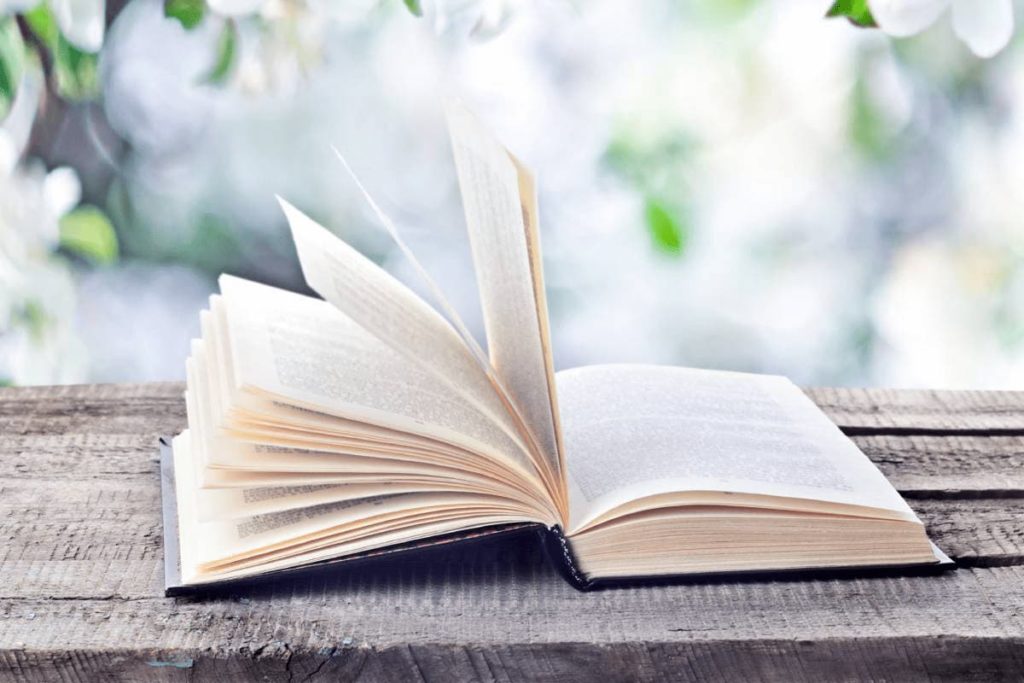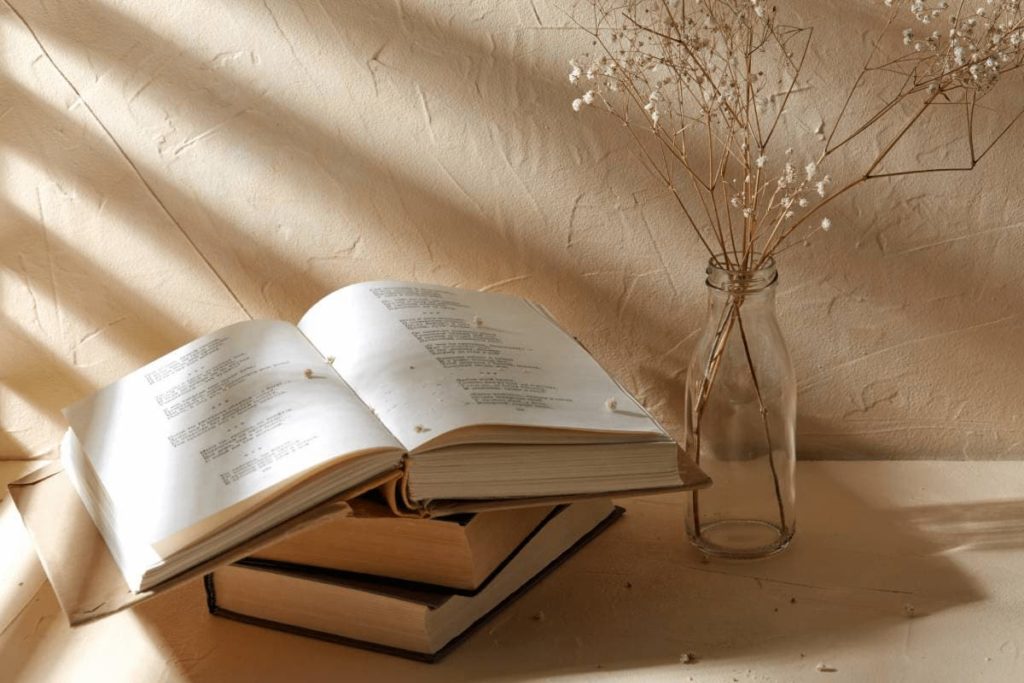It is wonderful that the world has experienced a renewed interest and passion for poetry, with poets like Rupi Kapur and Taylor Knott Gregson commanding millions of followers. Many hail Instagram as the savior of poetry, but just as many believe that it is the death knell for verse. So more than ever, people are asking what makes a piece of writing poetry.
Something is poetry when a writer crafts the written word to create a musical and condensed language rich in imagery and metaphor. Poetry seeks to share the truth of subjective experience to reveal more profound truths about human existence.
The deceptively simple language employed in great poetry belies the hours of craft and practice behind the seemingly flawless natural flow. Poetry takes hours of practice and informed knowledge of the craft to be a form of art that endures. Here are some ways to tell if you are reading pretty lines or a genuine piece of poetry.

Elements That Define Poetry
Writers often quote Carl Sandburg when defining the art of poetry as “an echo asking a shadow to dance.” His words ring especially true when it comes to the almost ungraspable essence of what truly defines a piece of writing as poetry.
Despite the enigmatic nature of this craft, certain constants elevate poetry writing from mere narrative or prose. Let’s now look at some of the ways that poetry distinguishes itself from other writing.
Poetry Is Craft
To the untrained eye, poems can appear deceptively simple. Great poems seem to flow like they have been plucked from the ether as complete entities to rouse and seduce us with their overwhelming resonance.
While it is not impossible for a poet to channel an entire poem from the invisible realms of chaos and beauty, most of us mortals have to work on crafting a successful poem.
The first half of the famous Khubla Khan by Coleridge came to him as an opium-fueled vision that was cut short by an unexpected visitor.
But not all of us poets get even half a poem delivered to us verbatim.
TS Eliot left thousands of drafts for academics to explore his creative process and found countless revisions between his original concepts and his successful poems. Some poems emerged entirely unrecognizable from their humble origins.
Phillip Larkin’s three most celebrated collections took him a decade each to write, and insiders tell of the almost torturous cycle of revisions he employed to reach his completed verse. If you haven’t yet read “Aubade” by Larkin, please do, it is possibly one of the greatest examples of a poem that exists.
Oscar Wilde lamented this sometimes torturous process of crafting a poem.
He bemoaned the poet’s life quite clearly when he wrote of spending an entire morning working on a proof of some of his poems only to remove a comma. That afternoon, he put it back again.
Although Wilde might have exaggerated the process, poetry takes hard work to craft a superior poem from its raw state. Poetry is hardly ever a simple stringing together of words but a process of crafting meaningful music from ineffable inspiration.

Poetry Is Music
The heart of poetry is its rhythm created by the musicality of words when spoken aloud. Much like a musical score, poetry uses stress and meter to enhance and convey the emotion and meaning behind its “lyrics”
Instead of musical instruments, poetry uses poetic devices to convey the word’s meaning by bringing certain words closer to the reader’s attention.
The timing and spaces between the words are composed into a score by specific poetic devices such as:
- Assonance
- Alliteration
- Repetition
Poetry creates musical patterns by rhyme scenes, and the meter is defined by the number of syllables in a chosen line.
Modernism did away with much of the traditional forms of poetry, such as sonnets which followed a meticulous meter and rhyme. However, the rhythm and meter are still at the heart of a successful poem.
One can view the different forms of poetry almost as musical genres themselves. Early poetry was a form of classical music, while free verse is like jazz or punk rock in some experimental poetry.
Poetry Is Life Condensed
The one aspect that distinguishes poetry from prose or everyday speech is its economy of language. Poets use as few words as possible so as to convey a deeper level of experience and perception.
Non-poetic language serves the essential function of expressing an opinion or relaying factual information. Poetry has the distinction of purpose, and that is to share an emotional response to an experience.
Thus poetic language is a lean and compressed language that forges diamonds from the coal of everyday speech. These diamonds are the value of real poetry as, in their essence, they draw on universal experiences and cross the boundaries of space to resonate with each person individually.
This brevity of purpose is mirrored by the shortened line structure that usually alerts a reader to the close reading required in the intimate world of poetry.
Poetry Is Vivid Imagery
Poetry uses figurative language to evoke a sensory experience in a reader, while also striving to paint a picture with words by using vivid and often incongruous imagery. Poetry is usually rich in descriptive language that plays to the reader’s senses and emotions, including:
- Smell
- Taste
- Smells
- Sounds
This heightened use of imagery brings emotional ideas to life and includes:
- Visual imagery: Poets often use visuals to evoke emotions in the form of metaphor, simile, personification, and rich, detailed descriptions.
- Auditory sensations: Poets use poetic devices somewhat like music to enhance and highlight the meaning of their words, including onomatopoeia to recreate the sounds of the poet’s experience.
- Tactile imagery: Many poems express the locus of the body to evoke visceral sensation in the reader.
Poetry Is Metaphoric
Poetry harnesses the power of metaphor to bring ideas to life by ascribing unique qualities to an experience by comparing it to another. This literary device uses comparison to highlight something that may seem common but becomes transformed and elevated by the comparison.
Often the use of metaphor in poetry “shocks” the reader out of their preconceived meanings and evokes a subconscious response of attention and deeper contemplation.
Poets can either use direct comparison through metaphor or extended metaphor throughout the entire poem. In this way, they shake the reader’s preconceived notions and invite them to explore a subject from an entirely new perspective.
Poetry Reveals Our Existence
Poetry is concerned with truth as a kind of revelation that brings to light aspects of existence that are usually hidden from us. However, the truth that poetry attempts to convey is a different kind of truth from that of scientific, objective facts.
Poets express a subjective truth of experience to express deeper, more universal truths of life and existence. Within this truth lies the power to evoke experiences and associations that involve feelings, thoughts, and sensations new to a reader even though they may be based on the familiar.
From the dim origins of oral history and before the written word, knowledge and wisdom passed from one generation to another through the power of the spoken word. The passing of wisdom often adapted rhythm and song to imprint the experience on the listener and defied the tranny of mortality.
This power to evoke is why so many poems are enduring, despite the changes in society, technology, and even how we express ourselves. Subjective truths may not be fact, but poetry harnesses the power of a moment to the enduring universality of the human condition.
In a sense, the genuine poet attempts to share the truth of their experiences to draw others into experiencing their own inner truth. Through shared experiences, humanity transcends its innate loneliness, which is the plight of every person who faces loss, mortality, and the capricious nature of love.
Closing Verse
Poetry is an art form that not many can master without considerable time, effort and practice. However, if you choose to constantly “risk absurdity” and are willing to put in the hours to hone your craft, you may have the makings of a true poet.

